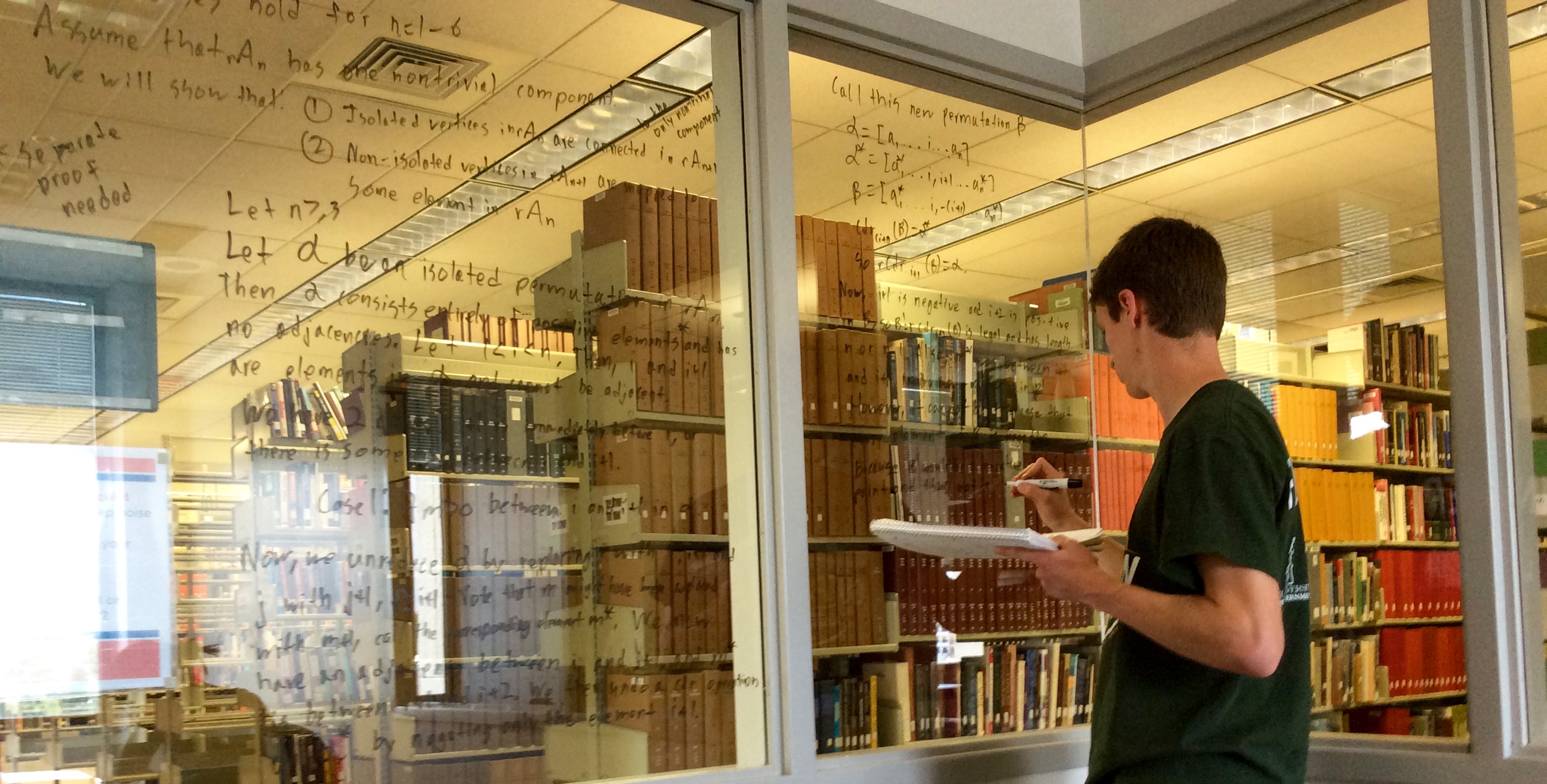
Internships & Undergraduate Research
A Conversation at Boise State
[one_half]
Undergraduate Research
answers by Dr. Liljiana Babinkostova
Why is undergraduate research important?
Undergraduate research enables students to develop independent critical thinking skills along with oral and written communication skills. It has valuable impact on the learning process and better prepares undergraduates for professional service/careers.
It benefits not only the students. Namely, through mentoring undergraduate students faculty can enhance learning experiences for students while benefiting from a productive research agenda. The university also benefits – through presentations and publications by undergraduate students the university increases its visibility in the scientific community.[/one_half]
[one_half_last]
Internships
answers by Dr. Russell Willerton
Why are internships important?
Internships are important for many reasons.
- First, they allow students to try a line of work before committing to it long-term.
- Second, they give students practical experience to list on their résumés.
- A third, related point is that they help students to build a network of professional acquaintances and co-workers.
- And fourth, internships allow students to apply some of the knowledge they have gathered from their classes.
[/one_half_last]
[one_half]How can students find research opportunities at Boise State and beyond?
Here are few sources that our university provide for students to learn more about undergraduate research and find opportunities for doing research on our campus and beyond
- Student Research Program (All disciplines)
- Institute for STEM and Diversity Initiatives STEM disciplines
- NSF Research Experience for Undergraduate Programs (nationwide programs in all STEM disciplines including the social and behavioral sciences)
- Council on Undergraduate Research
[/one_half]
[one_half_last]How can students find internship opportunities at Boise State and beyond?
Many departments have an internship coordinator. That person’s office is a great place to start. Some departments will post opportunities on a bulletin board, or perhaps they’ll send them out via email. The Career Center Internships page and BroncoJobs website are also good places to visit. It can be useful to talk with one of the Career Center staff members as well. Networking is an excellent way to find internships. Finally, an internet search will likely identify some internships. Many companies have established internships programs; students who want to intern at a specific company should check to see if that company regularly hires interns.
[/one_half_last]
[one_half]What transferable skills can students gain from participating in undergraduate research?
Participation in undergraduate research benefits students professionally, educationally, and personally. Below is a list of just a few of them.
Professional Benefits:
- It provides effective preparation in achieving their career goals whether they are going into graduate school or joining the workforce
- Develops marketable skills: critical thinking, creativity, problem solving, self confidence, and intellectual independence
- Enhances professional communication skills
- Opportunity to collaborate with others and learn how to be an effective member of a research team
Educational benefits include:
- Students work closely with a faculty mentor
- Provides hands-on learning
- They build skills on how to apply concepts learned in coursework to “real life” situations
- It sharpens their problem-solving skills
- Learn about methods, leaders, research problems in their own field
- Learn how to do a literature search – one of the first steps towards being a scientist/researcher
Personal benefits include:
- Helps the student to discover what are his/her personal interests
- Helps the student to develop the skills to overcome challenges and be able to complete a project in a timely manner
- Helps the student to become a more critical and independent thinker
- Helps the student to further develop internal standards of excellence
[/one_half]
[one_half_last]What transferable skills can students gain from participating in an internship?
Interns have to learn how to adapt to the company culture; these kinds of social skills are absolutely transferable. Interns are likely to work on projects with other people; collaboration is an invaluable skill. Interns also need to demonstrate a strong work ethic and good work habits.
[/one_half_last]
[one_half]What can students do now to ensure they are a strong candidate for a research opportunity?
- Have a decent academic standing.
- Usually a preference is given to students with strong interest in gaining research experience in preparation for graduate study or joining the workforce.
- Volunteering in a lab or pursuing some independent scientific work outside class demonstrates that the student indeed has those interests.
- Have strong recommendation letters. It is very important that the people writing the letter have knowledge and examples (preferably through observing the student) of the qualities of the student as worker and investigator. It is important to be able to give authentic descriptions of such qualities as attention to detail, enthusiasm, communication skills, intellectual abilities, and accomplishments. The most common ineffective recommendation letters received are “form letters” – with very little variation between contents of a letter for one student from that of a letter for another.
- Contribute their time and energy to some on-campus or off-campus clubs/activities.
- Have demonstrated ability to collaborate with others, and to communicate clearly and effectively.
If students have questions or need help with their application they can contact the Student Research Program at studentresearch@boisestate.edu.
[/one_half]
[one_half_last]What can students do now to ensure they are a strong candidate for an internship?
First, it always helps to have good grades. Some employers will require students to have a certain GPA. It also helps to have strong grades within a student’s major. Second, students can do an inventory of their skills and abilities. This list can give students direction on where to look for internships. Third, students should put together a list of three to five people who can serve as references. A close fourth is that students should contact each person on the list and ask if each can provide a strong reference; always get permission before listing someone as a reference. Fifth, students should plan ahead. Don’t wait until the last minute to try to find an internship.
[/one_half_last]